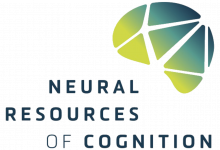Dear scientists,
Magdeburg’s Neuroscience research enjoys an excellent national and international reputation. It looks back on a history of more than 50 years. The main research areas are learning and memory, physiological and pathophysiological processes of brain plasticity, neuromodulation and cognition. Special emphasis is placed on the parallel study of human and animal behavior. Humane-experimental and clinical studies, animal-experimental-systems-physiological as well as molecular and cellular research approaches are pursued.
It creates a thematically focused cooperation in the sense of an equal, complementary, regional partnership between academic and non-academic institutions.
Relevant fields of application of the focus are
– the mechanisms of learning and memory processes with relevance for education and lifelong learning,
– clinical applications in neuropsychiatric disorders and dementia,
– medical technology with imaging techniques, telemedical applications and Neuroprostheses,
– human-machine interactions and
– Neuroeconomics, examining decision-making processes and the valuation of rewards.
In numerous evaluations and studies, including by such renowned institutions as the German Science Council and the German Research Foundation, the neurosciences have been recognized as an example of a convincing focus. They are profile-building for a university and internationally competitive.
The first funding periods from state funds and later also from the European Regional Development Fund (ERDF) have shown that the structure is ideally suited to allow alliances to develop.
Crucial to this is the Center for Behavioral Brain Sciences (CBBS), which currently brings together 100 neuroscientists from six faculties at the Otto von Guericke University (OVGU), the Leibniz Institute for Neurobiology (LIN), and the German Center for Neurodegenerative Diseases (DZNE).
CBBS consortia have resulted in projects funded by the German Research Foundation (DFG), EU projects and BMBF-funded initiatives. To date, CBBS members have raised more than 120 million euros in third-party funding, including SFB 1436 with funding of 14 million euros.
For a relatively small location like Magdeburg, this is the right way to bundle the “critical mass” of researchers, topics and resources in order to continue to be successful nationally and internationally and also to work towards a cluster of excellence within the framework of the Excellence Initiative of the federal and the state governments.
Another target is to promote the applicability of neuroscientific research and, in particular, to produce a new generation of application-oriented basic researchers through the education and training of young scientists with regard to the use of research results in technology and medicine.
In addition, cooperation with the state’s enterprises is to be initiated through targeted events. This also builds a bridge to application-oriented research and technology transfer. Examples of successful application-oriented research are the cooperation with the medical technology research campus STIMULATE and the state program “Autonomy in old age”.
I am convinced that the success story of Magdeburg as a neuroscience location will continue. In addition to basic research, future prospects include further expansion in the field of medical technology and aging research, the expansion of the microscopic imaging landscape into a macroscopic imaging landscape in Magdeburg, and the continued promotion of young scientists.
Prof. Dr. Armin Willingmann
Minister for Science, Energy, Climate Protection and Environment of the Federal State of Saxony-Anhalt













